-
 Bitcoin
Bitcoin $116900
0.00% -
 Ethereum
Ethereum $4280
5.48% -
 XRP
XRP $3.265
-1.45% -
 Tether USDt
Tether USDt $1.000
-0.01% -
 BNB
BNB $807.0
1.41% -
 Solana
Solana $183.1
2.93% -
 USDC
USDC $0.9999
0.00% -
 Dogecoin
Dogecoin $0.2440
6.50% -
 TRON
TRON $0.3357
-0.88% -
 Cardano
Cardano $0.8178
2.63% -
 Hyperliquid
Hyperliquid $44.13
7.45% -
 Chainlink
Chainlink $21.39
9.09% -
 Stellar
Stellar $0.4524
-0.84% -
 Sui
Sui $3.957
2.13% -
 Bitcoin Cash
Bitcoin Cash $572.7
-2.54% -
 Hedera
Hedera $0.2671
1.54% -
 Avalanche
Avalanche $24.77
4.17% -
 Ethena USDe
Ethena USDe $1.001
0.02% -
 Litecoin
Litecoin $122.3
-1.94% -
 Toncoin
Toncoin $3.432
2.26% -
 UNUS SED LEO
UNUS SED LEO $9.007
0.49% -
 Shiba Inu
Shiba Inu $0.00001396
5.26% -
 Uniswap
Uniswap $11.09
1.64% -
 Polkadot
Polkadot $4.155
4.57% -
 Dai
Dai $1.000
0.00% -
 Pepe
Pepe $0.00001253
5.11% -
 Cronos
Cronos $0.1588
2.67% -
 Bitget Token
Bitget Token $4.512
0.05% -
 Monero
Monero $275.0
0.64% -
 Ethena
Ethena $0.7527
15.10%
What is Bitcoin contract delivery?
Bitcoin contract delivery revolutionizes digital finance by enabling traders to speculate on Bitcoin's price volatility without the complexities of asset ownership.
Nov 27, 2024 at 12:15 am
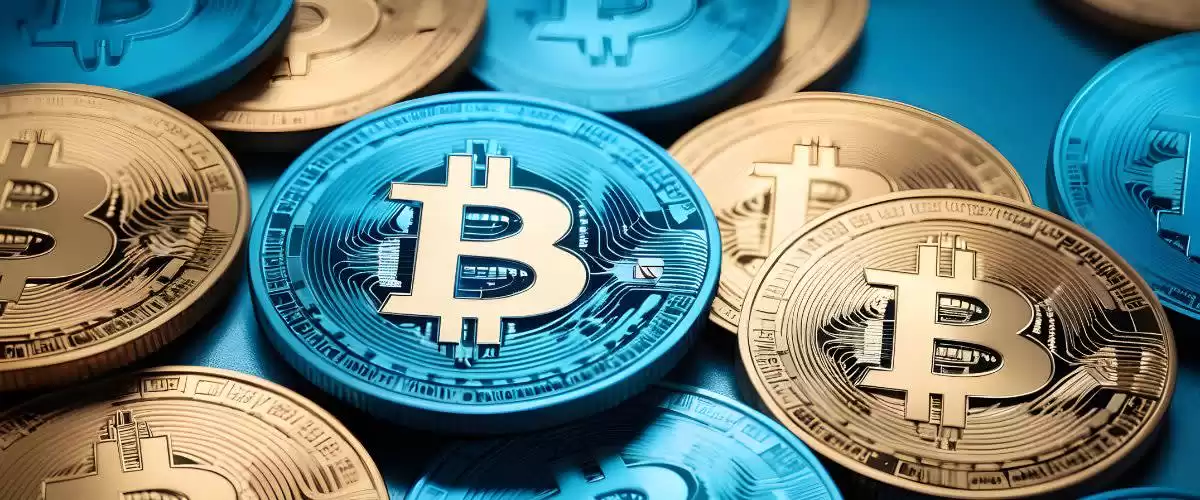
What is Bitcoin Contract Delivery?
In the realm of digital finance, Bitcoin contract delivery plays a pivotal role in facilitating the secure and efficient trading of Bitcoin, the world's preeminent cryptocurrency. This innovative mechanism allows traders to speculate on the price movements of Bitcoin without the hassle of acquiring and managing the underlying asset.
Bitcoin contract delivery offers a myriad of advantages, including:
- Leverage: Traders can amplify their potential returns by utilizing leverage, which magnifies their buying power.
- Hedging: Contracts can be employed to mitigate risk by allowing traders to establish positions that offset their exposure to adverse price fluctuations.
- Convenience: Eliminates the need for physical storage and transportation of Bitcoin, simplifying the trading process.
- Price Discovery: Contract markets provide real-time insights into the supply and demand dynamics of Bitcoin, influencing price discovery.
Understanding the Mechanics of Bitcoin Contract Delivery
Bitcoin contract delivery is predicated on the concept of a futures contract, an agreement to buy or sell a specified quantity of Bitcoin at a predetermined price on a future date. These contracts are traded on specialized exchanges known as futures exchanges.
- Contract Specifications: Each contract has its own unique specifications, including contract size (e.g., 1 Bitcoin), expiry date, and settlement terms.
- Order Placement: Traders can place orders to buy or sell contracts on the exchange's order book, specifying the contract details and the desired price.
- Matching and Execution: When a buyer's order matches a seller's order at an agreed-upon price, the contract is executed.
- Settlement: Upon contract expiry, the buyer is obligated to purchase the underlying Bitcoin, while the seller is bound to deliver it. Settlement can occur in physical Bitcoin or through cash equivalents.
Types of Bitcoin Contract Delivery
Bitcoin contract delivery encompasses various types, each tailored to specific trading strategies and risk tolerances:
- Perpetual Contracts: Also known as inverse perpetual swaps, these contracts have no fixed expiry date and are continuously traded. They offer leverage and allow for flexible entry and exit points.
- Quarterly Futures Contracts: These contracts expire on a quarterly basis, with settlement occurring on a specific delivery date. They are suitable for traders seeking to lock in prices for future delivery.
- Monthly Futures Contracts: Similar to quarterly futures, these contracts expire monthly and are ideal for short-term price speculation.
- Options Contracts: Options provide the right but not the obligation to buy or sell Bitcoin at a predetermined price on or before a specified date. They allow for advanced trading strategies and risk management techniques.
Choosing the Right Bitcoin Contract Delivery Platform
Selecting the most appropriate Bitcoin contract delivery platform is crucial for optimizing trading outcomes. Considerations include:
- Reputation and Regulation: Opt for exchanges with established reputations and regulatory compliance to ensure security and reliability.
- Liquidity and Depth: High liquidity and order book depth facilitate efficient order execution and minimize slippage.
- Fees and Commissions: Evaluate trading fees, commissions, and funding rates to optimize profitability.
- Customer Support: Responsive and knowledgeable customer support is essential for seamless trading and troubleshooting.
- Trading Platform Interface: Intuitive and user-friendly trading platforms enhance the overall trading experience.
Disclaimer:info@kdj.com
The information provided is not trading advice. kdj.com does not assume any responsibility for any investments made based on the information provided in this article. Cryptocurrencies are highly volatile and it is highly recommended that you invest with caution after thorough research!
If you believe that the content used on this website infringes your copyright, please contact us immediately (info@kdj.com) and we will delete it promptly.
- Trump, Nasdaq, and Token Treasury: WLFI's $1.5B Gambit
- 2025-08-10 06:50:12
- Trump, Nasdaq, and Token Treasury: WLFI's $1.5B Play
- 2025-08-10 06:30:11
- Coinbase, DEX Trading, and Base Network: A New Era for Crypto?
- 2025-08-10 06:30:11
- Block Inc., Bitcoin, and Mining Chips: Reshaping Digital Finance, New York Style
- 2025-08-10 06:50:12
- Stablecoin Surge Ignites Altcoin Investment Hunt: What's Hot Now?
- 2025-08-10 06:55:16
- Penny Crypto Dreams: Can XRP Reach $10,000? A Look at LILPEPE and the Meme Coin Mania
- 2025-08-10 04:50:11
Related knowledge
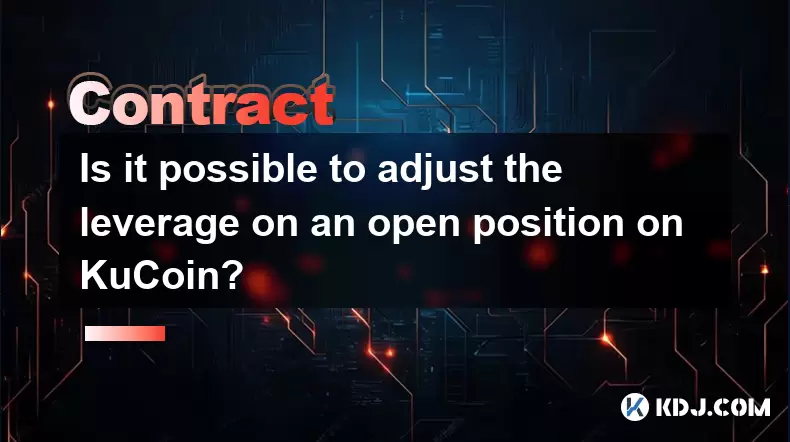
Is it possible to adjust the leverage on an open position on KuCoin?
Aug 09,2025 at 08:21pm
Understanding Leverage in KuCoin Futures TradingLeverage in KuCoin Futures allows traders to amplify their exposure to price movements by borrowing fu...
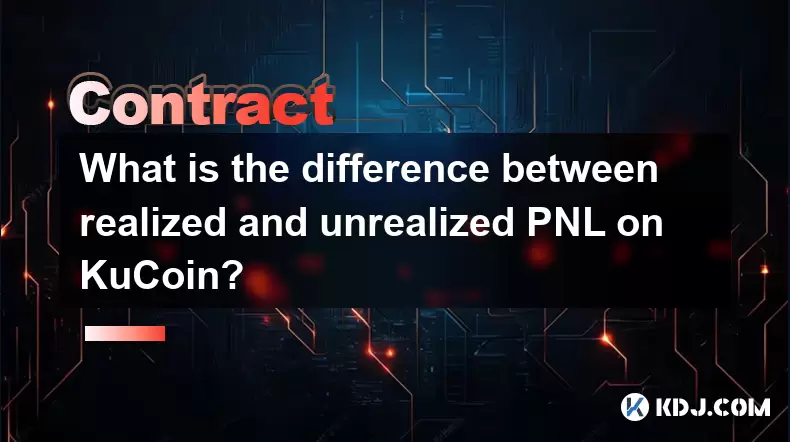
What is the difference between realized and unrealized PNL on KuCoin?
Aug 09,2025 at 01:49am
Understanding Realized and Unrealized PNL on KuCoinWhen trading on KuCoin, especially in futures and perpetual contracts, understanding the distinctio...
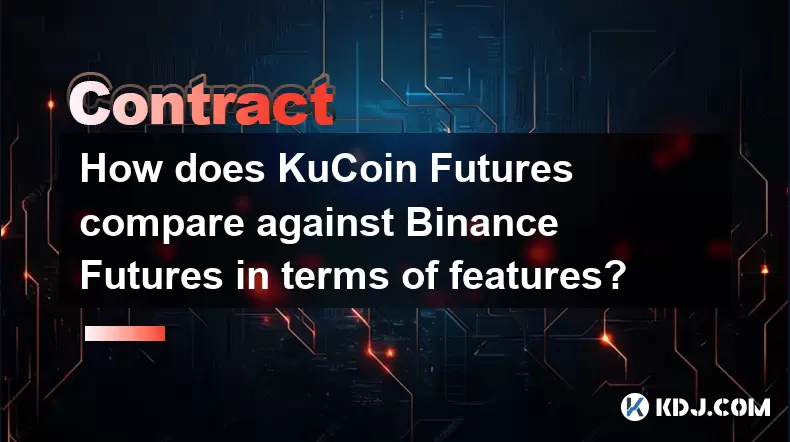
How does KuCoin Futures compare against Binance Futures in terms of features?
Aug 09,2025 at 03:22am
Trading Interface and User ExperienceThe trading interface is a critical component when comparing KuCoin Futures and Binance Futures, as it directly i...
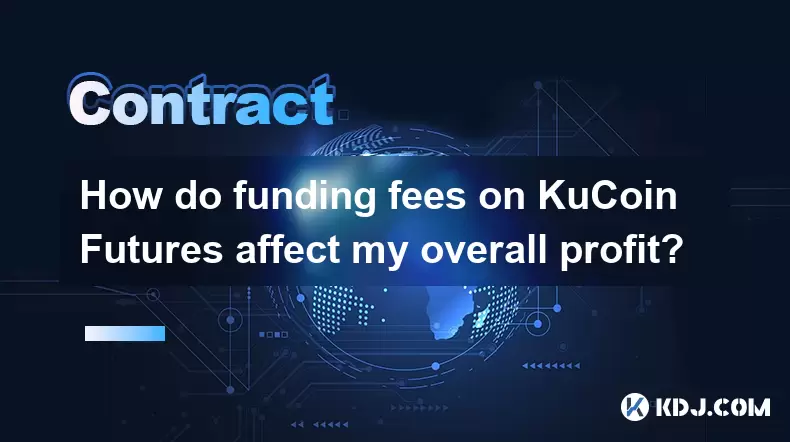
How do funding fees on KuCoin Futures affect my overall profit?
Aug 09,2025 at 08:22am
Understanding Funding Fees on KuCoin FuturesFunding fees on KuCoin Futures are periodic payments exchanged between long and short position holders to ...
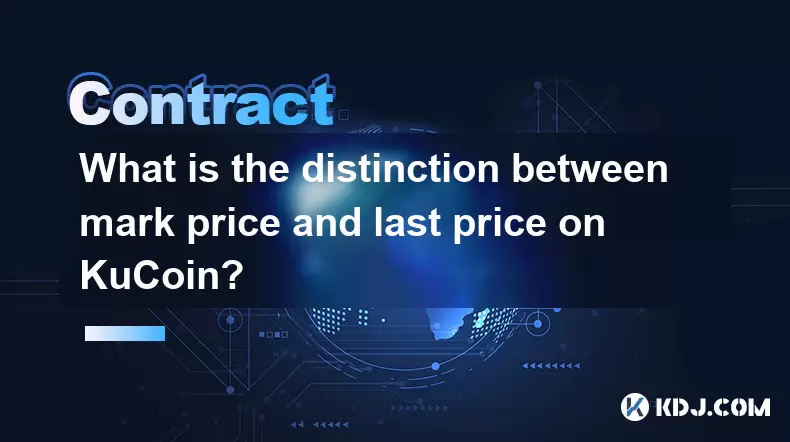
What is the distinction between mark price and last price on KuCoin?
Aug 08,2025 at 01:58pm
Understanding the Basics of Price in Cryptocurrency TradingIn cryptocurrency exchanges like KuCoin, two key price indicators frequently appear on trad...

What are the specific maker and taker fees on KuCoin Futures?
Aug 08,2025 at 08:28am
Understanding Maker and Taker Fees on KuCoin FuturesWhen trading on KuCoin Futures, users encounter two primary types of fees: maker fees and taker fe...

Is it possible to adjust the leverage on an open position on KuCoin?
Aug 09,2025 at 08:21pm
Understanding Leverage in KuCoin Futures TradingLeverage in KuCoin Futures allows traders to amplify their exposure to price movements by borrowing fu...

What is the difference between realized and unrealized PNL on KuCoin?
Aug 09,2025 at 01:49am
Understanding Realized and Unrealized PNL on KuCoinWhen trading on KuCoin, especially in futures and perpetual contracts, understanding the distinctio...

How does KuCoin Futures compare against Binance Futures in terms of features?
Aug 09,2025 at 03:22am
Trading Interface and User ExperienceThe trading interface is a critical component when comparing KuCoin Futures and Binance Futures, as it directly i...

How do funding fees on KuCoin Futures affect my overall profit?
Aug 09,2025 at 08:22am
Understanding Funding Fees on KuCoin FuturesFunding fees on KuCoin Futures are periodic payments exchanged between long and short position holders to ...

What is the distinction between mark price and last price on KuCoin?
Aug 08,2025 at 01:58pm
Understanding the Basics of Price in Cryptocurrency TradingIn cryptocurrency exchanges like KuCoin, two key price indicators frequently appear on trad...

What are the specific maker and taker fees on KuCoin Futures?
Aug 08,2025 at 08:28am
Understanding Maker and Taker Fees on KuCoin FuturesWhen trading on KuCoin Futures, users encounter two primary types of fees: maker fees and taker fe...
See all articles

























































































